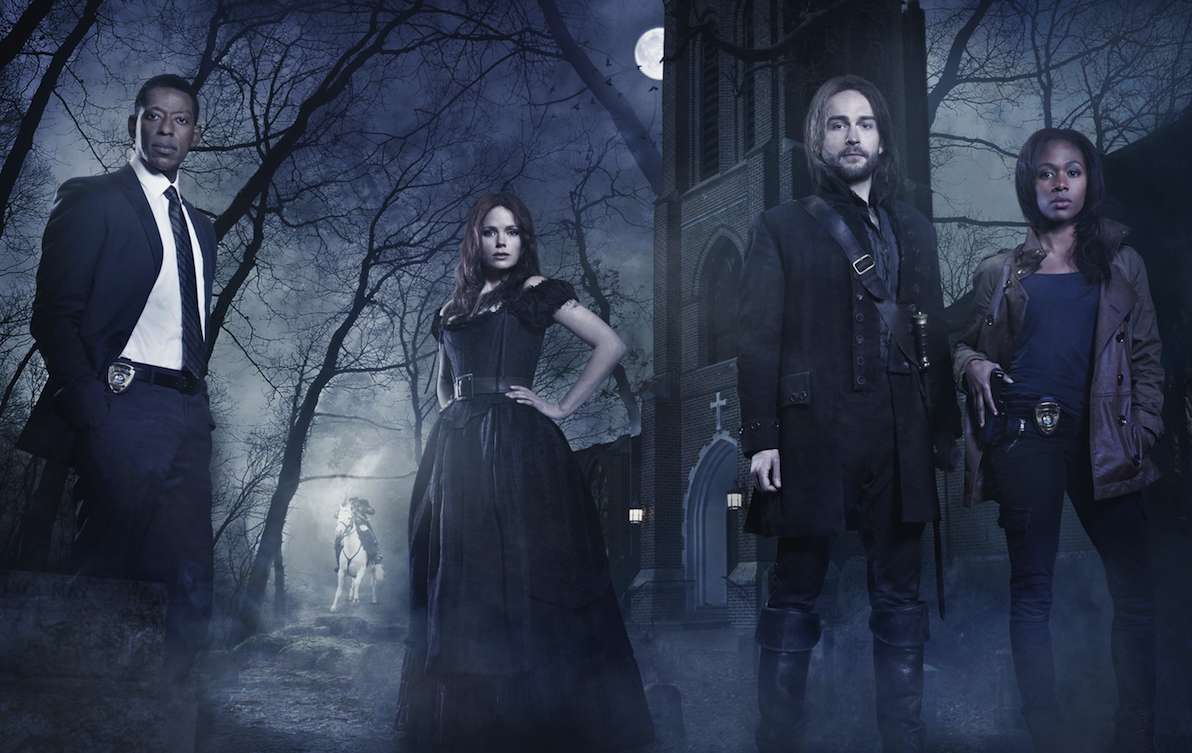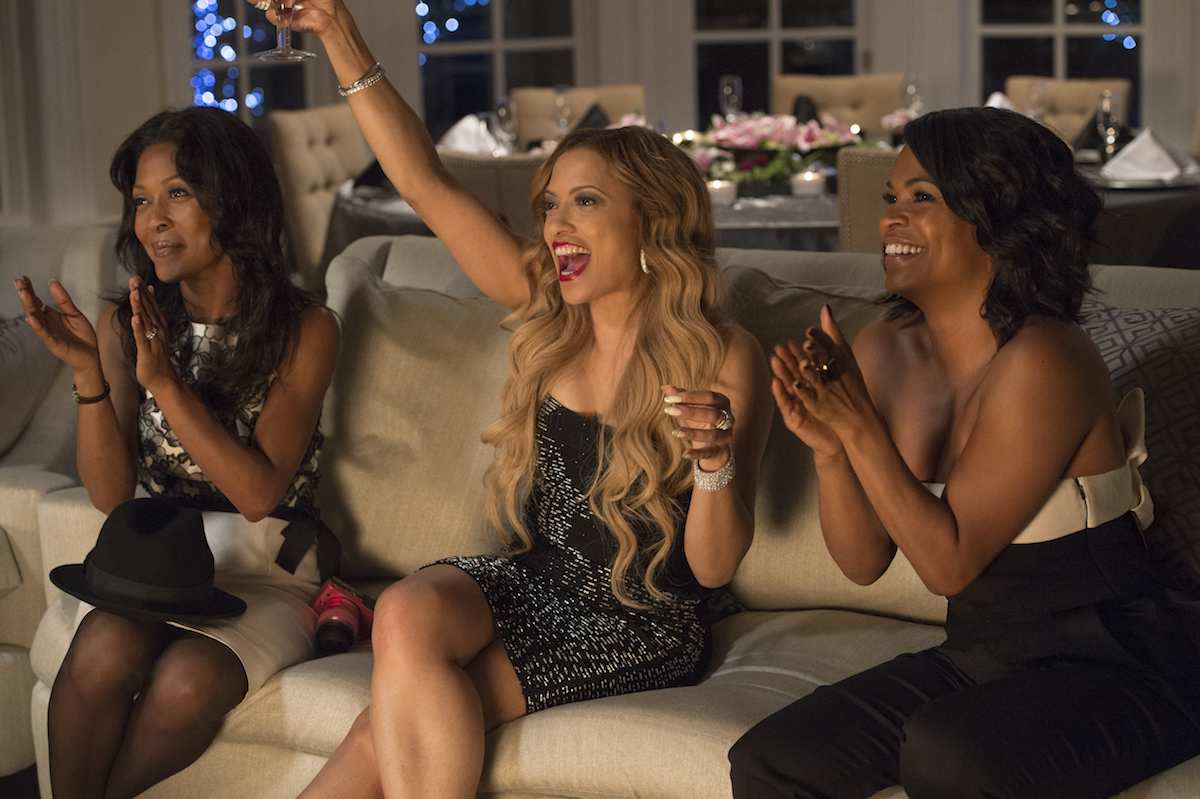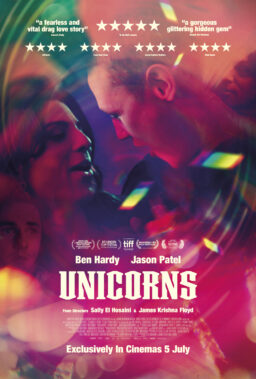When it’s a dry year for depictions of women in mass culture, I tend to savor the simple appearance of the female form on screen, hoping the woman in question won’t be revealed backside-first, and praying that she’s been granted a sharp line or two. But when the harvest is richer, I feast, to store up good memories for famine years. And 2013 has been a year to savor women as lovers, as mothers, as sisters, as freedom fighters, and as friends.
Memory #1: “Fruitvale Station“

We’re all familiar with The Bechdel Test, the measure of whether a movie has at least two female characters who talk to each other about something other than a man. “Fruitvale Station”, which premiered at the Sundance Film Festival, served as a reminder that however necessary the Bechdel Test is as a corrective, it’s not the only measure of a movie’s quality. In Ryan Coogler’s debut feature, the man who’s loved and worried over by three women is Oscar Grant (Michael B. Jordan). After his release from prison, Oscar is attempting to build a life for himself that includes being a good father to his much beloved daughter Tatiana (Ariana Neal), a partner to his girlfriend Sophina (Melonie Diaz), and son to his mother Wanda (Octavia Spencer), whose birthday falls on New Year’s Eve.
Coogler sets “Fruitvale Station” on that single day, which will end with Oscar being shot to death on the platform of a BART station by an officer who thought he’d pulled his taser from his belt. And much of the way he sets out to make Oscar’s death a tragedy is to show us how much the young man means to the women in his life.
Oscar’s an inveterate flirt and smooth talker, which is the root of some of his trouble. When the film begins, Oscar is convincing Sophina, who he cheated on, to take him back. As infuriating as the experience must have been, we’re seduced along with Sophina when Oscar lays out his plan to “just not f@#k up” for thirty days, long enough to form a habit. In Sophina’s smile, we can see how much fun Oscar must be, a source of enough joy to take the risk that there will be pitfalls on his meandering road to sober adulthood.
With Tatiana, Oscar is joyously, unrestrainedly tender and rambunctious, the kind of man who has no shame about dashing off in a footrace with his baby girl and sweeping her up into his arms after he wins. Tatiana’s parents may be struggling, but she reflects all the open-hearted good wishes of both her parents.
And Wanda, who’s been made cautious by the pain of seeing her son in prison, vacillates between wanting to protect Oscar and hoping again as he MCs a raucous birthday dinner for her. Wanda talks Oscar into taking the BART into San Francisco with his friends for New Year’s celebrations, rather than risking driving drunk. Her guilt after Oscar is killed on the very means of transportation chosen for protection is a concise and terrible embodiment of the worst nightmares of parenthood. She and the other two women in Oscar’s life are a tidy, jewel-like portrait of the Three Ages of Woman, infinite possibility aging into a reckoning with the world’s capacity for cruelty.
Memory #2: “Sleepy Hollow“

Sometimes, the greatest cruelties can be carried out not against families, but within them. When Fox announced “Sleepy Hollow” as part of its fall lineup, it was exceptionally difficult to take the pitch seriously. How could a show that posited that Ichabod Crane (Tom Mison), actually a badass spy instead of a milquetoast schoolteacher, had been resurrected in contemporary Sleepy Hollow, and partnering with a young detective named Abbie Mills (Nicole Beharie) to fight the Four Horsemen of the Apocalypse, actually make sense, much less be one of the best dramas of the fall?
It helps that “Sleepy Hollow” turns out to be tremendously funny and self-aware. But it’s also anchored by a original sin committed by Abbie against her twin sister Jenny (Lyndie Greenwood). As teenagers, Abbie and Jenny (played as younger girls by Jahnee Wallace and India Scandrick) stumbled across a demon and were knocked out by a mysterious power. When questioned about what happened, Jenny told the truth, but Abbie, who could have corroborated her sister’s account, denied it, letting the adults in their lives think that Jenny was mentally ill. It’s a terrible thing for Abbie to have done, and “Sleepy Hollow”, which is chock-full of Revolutionary War flashbacks and cheesy special effects, is wise enough to linger on it.
Beharie plays Abbie as a woman who clings hard to her confidence in her own choices and ideas, which she’s worked hard to recover after the encounter with the demon and a placement with a terrible foster family. And Greenwood’s Jenny has perpetually narrowed eyes and a hair-trigger attitude, the legacy of both her repeated institutionalizations in mental health facilities and her trips to dangerous parts of the world to try to understand what happened to her as a child. Watching these two formidable women circle around each other, and the pain and shame they’ve caused each other, grounds “Sleepy Hollow”‘s supernatural silliness in a real recognition of the specific harm that sisters can do each other. But just because two wounded sisters can begin to forgive each other doesn’t mean that all wounds can heal.
Memory #3: “12 Years a Slave“

“12 Years a Slave” has been much remarked-upon for Steve McQueen’s unflinching depiction of the cruelties endured by Solomon Northup (Chiwetel Ejiofor), a free man kidnapped and sold into slavery, who is restored to his freedom and his family more than a decade later. The philosopher Stanley Fish has written that the way the film alters the real-life Northup’s memoirs, cutting out the process by which Northup’s freedom was made a public crusade and presenting it instead as a surprise, “is so abrupt and so quickly achieved that it is made to seem miraculous and the audience is not invited to generalize from it to any optimistic conclusion about the merits of the liberal state informed by the rule of law.”
The instrument of that hopelessness is the woman that Solomon leaves behind when he departs the plantation of the monstrous Edwin Epps (Michael Fassbender), a slave named Patsey (Lupita Nyong’o). Much of the movie finds Solomon accustoming himself to the shock of his enslavement and the expectations that accompany his diminished status. But at each step of his journey, the experiences of enslaved women around him serve as a reminder that there are worse sufferings than what Solomon has experienced. He does not, at least, experience having his children sold away from him and being chastised for mourning them. And no woman suffers more in Solomon’s presence than Patsey. She is repeatedly raped by Epps and attacked by Epps’ wife (Sarah Paulson), caught in the toxic cycle of the white couple’s failed marriage. Her record cotton-picking yields earn her no relief, simply proving to Epps the divine nature of his slaveholding.
Where Solomon tries to become as invisible as possible, Patsey never stops seeking release, or relief, or simply an affirmation of her humanity. Early in Solomon’s time on Epps’ plantation, Patsey asks him to kill her, and to make her body disappear, the abnegation of her identity in an unmarked grave preferable to Epps’ merciless attentions. The tenderness of her appeal and the strength of her conviction are so intense that Solomon flinches from them and from the idea that Patsey’s assessment of her situation might be correct. He has something to live for. Patsey is not so lucky, and her courage in continuing to live despite that is rendered awe-inspiring in Nyong’o’s every gesture, from her stoicism during a rape to the reproachful glance she gives Solomon with an eye shot through with burst blood vessels.
When Epps decides that the freedom he’s granted Patsey to visit friends on Sunday must be rescinded so she can be available to him, Patsey makes a stand that’s less about reminding Epps of the humanity he’s buried deep within himself like a corpse, and more about reminding herself that she has a right to want things. Nyong’o is a tiny woman, especially compared to Fassbender, but her body is electric with power when she explains to the man who owns her that she’s gone to beg soap on another plantation because Epps wife, in an effort to degrade her, has refused to let Patsey wash. “500 pounds of cotton a day, more than any man. And for that I will be clean. That’s all I ask,” she tells Epps, wringing the words from herself, it takes such courage to say them.
In the film’s final moments on the Epps plantation, Solomon’s friend has come to liberate him, an arrival that emphasizes the relative privileges Solomon has had over Patsey all along: somewhere out there, people cared for him, even though Solomon couldn’t tell them where to direct their attentions. Without such advocates to care for her, Patsey will have to wait for an entire nation to be moved by the abstracted plight of others like her, and for their influence to crush the will of Edwin Epps. Solomon’s departure is a savage acknowledgement of how different their plights have always been. But it’s Patsey who makes their final moments tender and defiant: she hugs Solomon, rejecting Epps’ orders and courting his wrath to give Solomon’s final moment in slavery some sweetness, even though he’s failed to prevent so much of her pain, and even inflicted some of it himself. If the expression in Nyong’o’s eyes is too complicated to be easily labeled, that’s as it should be.
Memory #4: “Brooklyn Nine-Nine”

I’ve given the impression that I’ve mostly watched women suffering this year, and it’s true that Nyong’o’s performance in particular burns like a signal fire on a mountain top for me—I imagine it’ll flare again and again in my memory. But that doesn’t mean there hasn’t been fun and even silliness as well. One of the real pleasures of the year has been to watch different kinds of women bump up against each other on their way to making friendships or repairing them.
Embodying the stereotype of the fiery Latina, a splash of color in the monochrome of “Modern Family”, has made Sofia Vergara the highest-paid actor on television, when both her per-episode salary from ABC and her lucrative endorsement deals with brands like Pepsi and Cover Girl are taken into account. I don’t grudge Vergara her schtick or her money, though it’s remarkable (and a sign of evolving expectations) how quickly “Modern Family” has gone from feeling like a disruptive influence on family sitcoms because of its inclusion of a gay couple and a multiracial one, to a slightly regressive chestnut. But the success of her performance is, I think, one of the reasons I enjoy watching Stephanie Beatriz and Melissa Fumero on “Brooklyn Nine-Nine” so much.
Beatriz and Fumero play Detective Rosa Diaz and Detective Amy Santiago, young officers in a Brooklyn police district where rivalries between pizzeria proprietors ignite arson cases and hipster Halloween festivities cause endless irritation. An easy default would have been to make Diaz and Santiago rivals for promotion or cases. Instead, Santiago frequently finds herself in competition with Detective Jake Peralta (Andy Samberg), a jokey but competent investigator whose laziness comes across as contempt for his own talent. Santiago and Diaz have a spiky dynamic that captures a relationship that’s all too rare in pop culture: the space in between friendship and outright opposition that’s sometimes occupied by women with very different styles.
As Diaz, Beatriz’s performance has more than a hint of the dourness Aubrey Plaza brings to bear as April Ludgate in “Parks and Recreation,” another show from “Brooklyn Nine-Nine” co-creator Michael Schur. But if April’s sullenness is a holdover from her adolescence, Diaz’s nonplussed nature and penchant for secrecy are the cultivated characteristics of an adult. The little upturn in Diaz’s lips as she mulls over the sexiness of a deeply irritating Major Crimes detective nicknamed “The Vulture,” and her nonchalance while—dressed as the Bride of Frankenstein—she knocks down and cuffs a suspect who’s making a break for it, both contribute to her iceberg persona. Not only is there more below the waterline than above it, but the contours of the ‘berg, which include a boyfriend and a stint in ballet school, aren’t predictable.
It makes sense that Diaz doesn’t exactly get along with Santiago, who Fumero plays as grown-up Hermione Granger. Santiago is desperate for the approval of her new captain, Ray Holt (Andre Braugher), and irritated by Peralta’s flippant attitude towards a job she cherishes. In almost every scene, you can see Fumero suppressing a gesture, be it a hand that’s itching to shoot skyward in a precinct briefing, or a foot she’s keeping planted on the floor even though she’d rather stamp it in frustration.
In one of the show’s most grounded subplots, Santiago finds out that Diaz has been offered and turned down a captain’s job in a suburban town. Her competitive instincts kick in, and she demands that Diaz put her up for the job, only to find that the town is so deadly boring Santiago couldn’t stand to work there permanently. On the ride home, Santiago confesses yet another emotion that’s uncommon on network television: she’s so used to working with only male cops that she doesn’t know when to turn her competitive instincts off, even if the prize in question isn’t worth fighting for. And Diaz, in a nice counter to network television’s tendency to pit women in question, tells Santiago she can turn off that instinct now that there’s another woman in the Nine-Nine. They can move forward in their careers together.
Memory #5: “The Best Man Holiday“

It takes longer for the women of Malcolm D. Lee’s “The Best Man Holiday”, who are reunited for Christmas at the request of their mutual friend Mia (Monica Calhoun), to reach a similar conclusion. The movie has its fair share of silliness, including a record-setting football rush, a Christmas ornament breaking in slow motion, and a breech baby delivered safely in a car by an NFL All-Star. But as Jordan, an executive for MSNBC who’s anxious about how serious her relationship with her boyfriend Brian (Eddie Cibrian), who is white, has become, Nia Long does very nice work elevating a particularly stock character: the Professional Woman Who’s Closed Herself Off To Love.
Jordan, unlike so many of her counterparts in romantic comedies, hasn’t avoided developing her personal life because the plot requires that she be cured by the love of a good man. She’s clearly serious about Brian, though that relationship is shot through with anxiety because of Brian’s race, how she thinks the people in her life will respond to him, and her own feelings about whether or not she should be with a black man instead (explored in part in a funny, lewd conversation with her girlfriends about sex).
Jordan never bothered to develop a relationship with Robyn (Sanaa Lathan), wife of her friend Harper (Taye Diggs), after Harper proposed to Robyn rather than pursuing an affair with Jordan. The movie lets you see why: Robyn is distrustful and prone to assume the worst about Harper and Jordan’s friendship, even though it’s completely platonic at this point. But the movie is also clear that letting their friendship with Harper lapse has been bad for both Jordan and Harper. When he walks through her door needing career advice, she’s got a terrific idea for him and gets to work helping him achieve it. And when Jordan discovers that Mia, another friend she’s drifted away from, is terminally ill, Harper’s able to give Jordan support without treating her like she’s weak.
It would have been easy for “The Best Man Holiday” to turn Jordan into a neurotic stereotype who gets an empty life as punishment for ambition. Instead, Long gets to turn in a lovely little character sketch of a woman working through real, human-scale problems. In a year when action movies seemed determine to one-up each other in destroying ever-larger metropolitan areas, that’s refreshing. Long’s work makes “The Best Man Holiday”, for all of its excesses, feel like one of the few purely entertaining movies aimed at adults this year.
This year offered many other female performances worth praising, including Sandra Bullock’s trip to space in “Gravity“, Scarlett Johansson’s seeming liberation from her body in “Her” and Anna Gunn’s agonized endgame in “Breaking Bad” among them. But even though some of the performers I’ve singled out are playing women living through extraordinary circumstances—be it American slavery in “12 Years A Slave” or the arrival of the Four Horsemen of the Apocalypse in “Sleepy Hollow”—what struck me about their work is how deeply it plumbed simpler parts of the human experience. How do you balance your fear and your hope? What’s the best way to heal damage to long-standing relationships, be they with sisters or with friends? Where are the limits of your dignity? When can you trust someone enough to stop competing with them?
In so many years, it’s easy for women to feel invisible on screen. This year, during a good many weeks, it felt like anything was possible.











